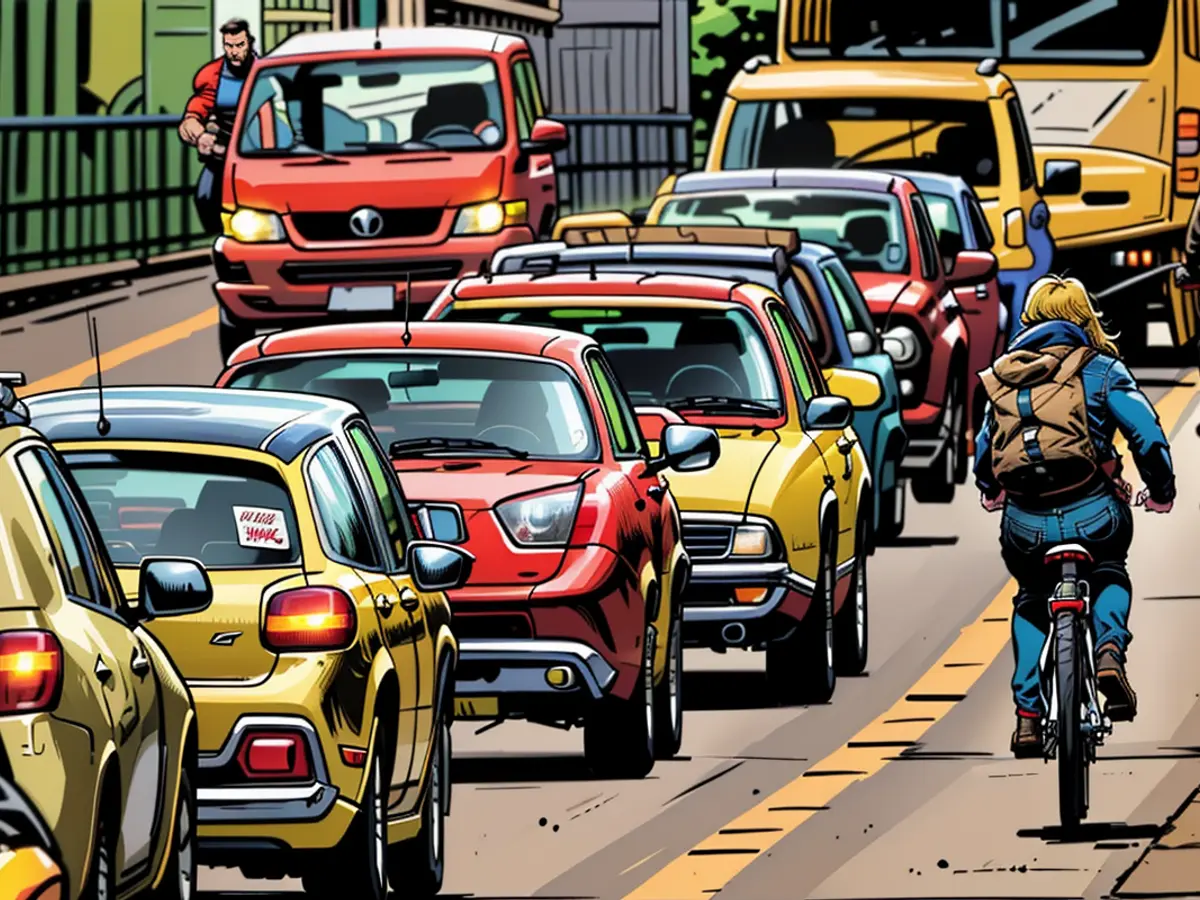- FDP calls for "politics for the car"
The FDP demands a traffic policy that favors cars and largely rejects restrictions such as converting streets into bike and pedestrian zones. They want to make city centers more attractive to drivers by offering free parking or affordable flat-rate parking. This is outlined in a resolution by the FDP's executive committee. "We don't want an ideological mobility policy," emphasized FDP General Secretary Bijan Djir-Sarai afterwards. "The car should not be deliberately disadvantaged."
"Waging a one-sided culture war against the car is waging a culture war against the reality of people's lives, especially in regions like Brandenburg and rural areas," said Brandenburg's FDP leader Zyon Braun. He is set to lead a working group on traffic policy for the Liberals.
Free Parking to Revitalize Cities
With their proposal for free short-term parking or a nationwide parking model similar to the 49-euro public transport ticket, they aim to "counteract the decline of cities," said Braun. However, he acknowledged that the federal government can only urge municipalities to take such measures, as parking falls under their jurisdiction.
24/7 Construction Work
The FDP's list of demands also includes allowing 16-year-olds to drive under supervision. They want to make traffic lights more efficient through digitalization and artificial intelligence. For construction sites, they demand work on weekends and nights, and in three shifts. Their list also includes familiar positions such as opposing a general speed limit on highways and alleged plans by the EU Commission to scrap millions of diesel vehicles. However, Brussels has clarified that it has no such plans.
The FDP's stance on transportation and telecommunications is evident in their traffic policy proposals, which prioritize cars and seek to improve city centers for drivers. They advocate for measures such as free parking or affordable flat-rate parking to attract drivers to city centers.
The proposed nationwide parking model by the FDP, similar to the 49-euro public transport ticket, is aimed at revitalizing cities and counteracting their decline, falling under their initiatives in the field of transport and telecommunications.








